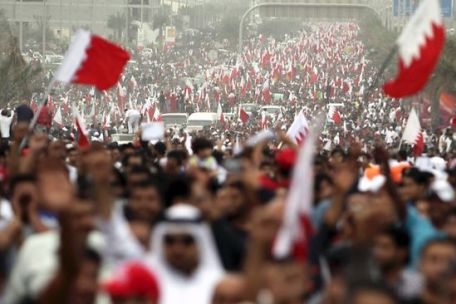Does Bahrain Bring Tehran and Riyadh Closer?

Among the Arab states of the region, Saudi Arabia’s feud with Iran has been the most deep-seated and intense. The uprising of the Arab street, particularly in Bahrain, added to the long-running row. Riyadh’s dispatch of security forces to crack down on Shi’a demonstrators in Bahrain has set a dangerous precedent for foreign intervention. Five months after the advent of protests in Bahrain, as national reconciliation talks between the opposition and the royal family have started, the withdrawal of Saudi troops from Bahrain has provided an opportunity for Tehran and Riyadh to mend relations. Iranian Diplomacy interviewed Mohammad Karami-Rad, member of parliament, about the quality of Iran-Saudi Arabia negotiations.
IRD: The situation is changing in Bahrain. Saudi forces have withdrawn from Bahrain and negotiations between the opposition and the ruling family have begun. How optimistic are you about the effectiveness of the talks?
MKR: Bahraini citizens are determined to reclaim their rights. Despite the different economic situation in Bahrain, the social and political settings militated against unrest. Saudi Arabia’s dispatch of military forces to Bahrain aggravated the situation.
IRD: What was the cause of the Saudi decision to intervene?
MKR: Riyadh had earlier meddled in Yemen during the Houthi uprising. When it comes to unrest in their neighborhood, especially when involving Shi’as, the Saudis are irritable. Shia-phobia was the main drive for the Wahhabi rulers to dispatch troops to Bahrain. The resistance of Bahraini citizens however, foiled Riyadh plans. The Saudis’ withdrawal is another opportunity that the Bahraini citizens should appreciate.
IRD: Saudi Arabia has invited Iran to be part of trilateral negotiations between Kuwait, Saudi Arabia and Iran. Will Iran join the talks?
MKR: Our government should seize this opportunity. In a situation when Saudi Arabia and Kuwait are trying to untangle the complexities in the region, the diplomatic apparatus, the National Security Council and above all, the Supreme Leadership should decide about negotiations with Saudi Arabia. Iran will naturally have preconditions for talks. I think if we look at this situation as an opportunity and step in with a careful plan, it will be fruitful. But if the negotiations do not serve the interests of Iran or the Muslim citizens of Bahrain, they should refuse to join the talks.
IRD: Can we look forward to improvement of relations between Tehran and Riyadh?

